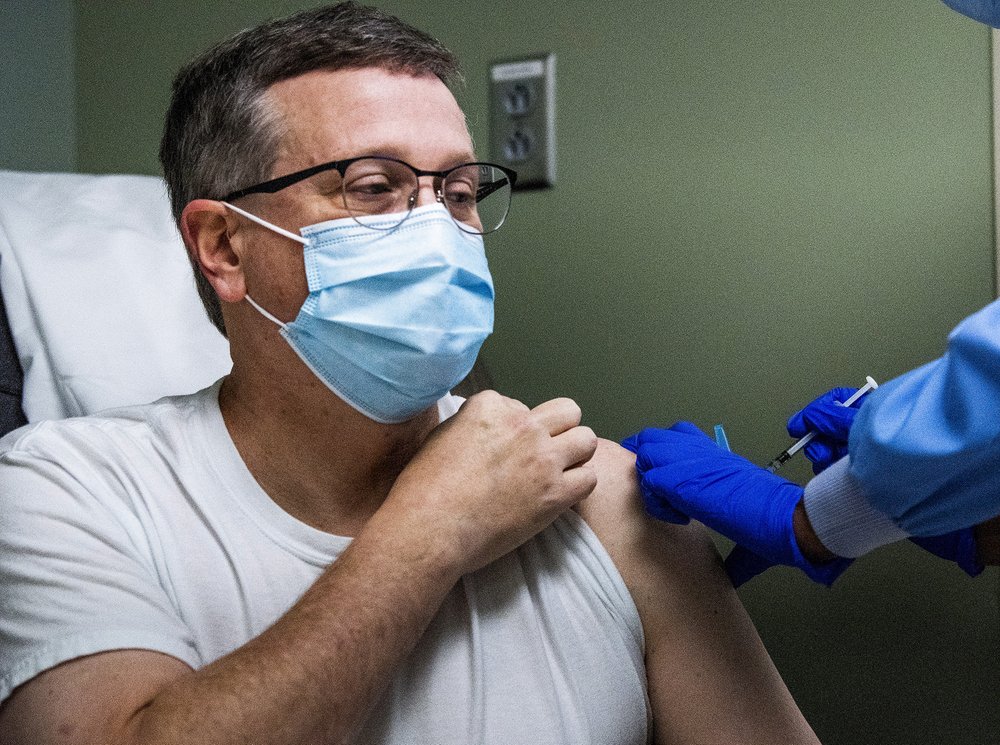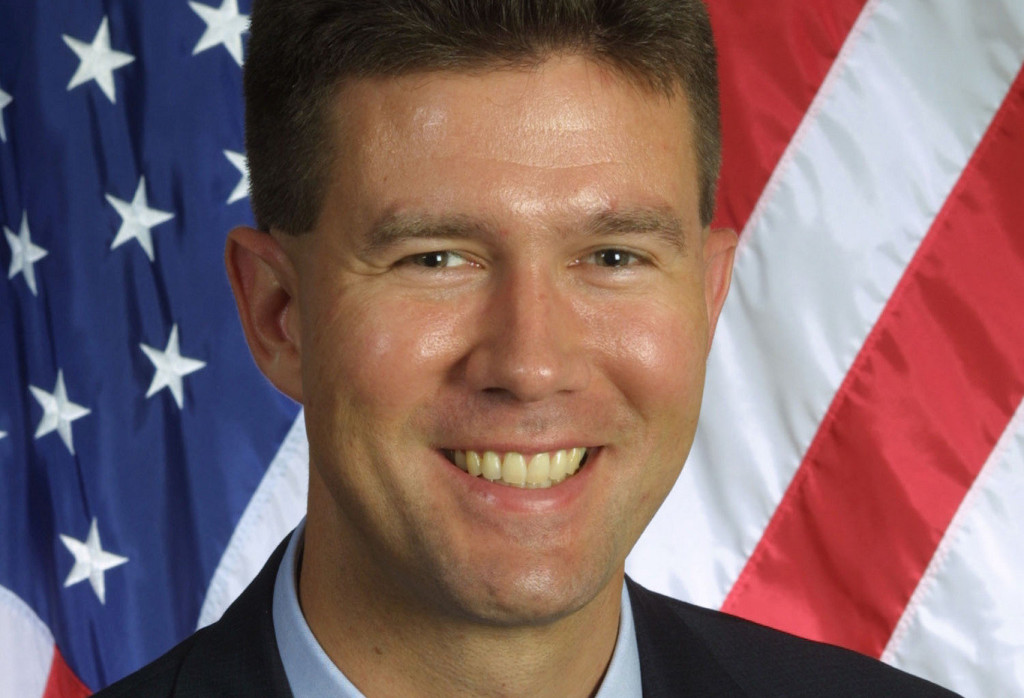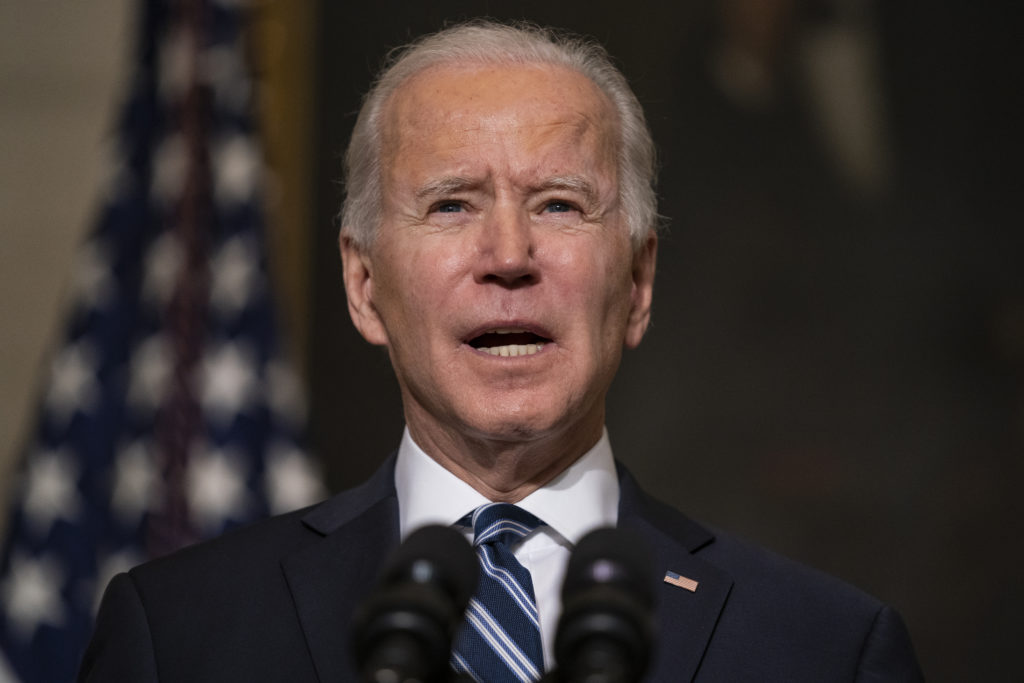Email Insight: Jim Zeigler and coalition of activists oppose mega prisons, call on legislature to audit Department of Corrections

Jim Zeigler has been outspoken on his belief that Governor Kay Ivey’s plan to build 3 mega prisons is a costly mistake that Alabama shouldn’t make. In a recent op-ed, Zeigler stated, “Governor Kay Ivey is just days away from signing contracts that will saddle taxpayers with a minimum $2.6 billion bill for leasing three new mega-prisons for 30 years. In the end, we will own equity in the prisons of exactly ZERO. The companies that held these lucrative leases will own the prisons, and we, the taxpayers, will have to start completely over and pay for the prisons a second time – pay 100% again.” Ivey’s plan would create three mega prisons, each housing around 10,000 inmates and would force the closure of several existing prisons. Representatives Rich Wingo, Arnold Mooney, and Steve Clouse have all expressed concerns. Clouse, who chairs the budget committee, said, “there are a lot of questions that the Legislature would like answered.” Zeigler has called for an independent audit of the Alabama Department of Corrections. Now 13 citizen groups support his audit request. Here is the letter they are sending to Kay Ivey and the Alabama legislature. Alabama is Getting Swindled For Billions 1/29/21 To the Alabama State Legislators: We are a coalition of people, communities, and organizations committed to stopping the ill-conceived construction of prisons being forced upon Bibb, Elmore, and Escambia counties. We are made up of communities of farmers and activists in each of those counties, more than a dozen organizations and churches across the state, and nearly 300 Alabama students from 28 colleges, universities, and law schools, writing to you in opposition to Governor Kay Ivey’s attempt to spend $2.6 billion on three new mega-prisons without a shred of transparency. We are Communities Not Prisons, and our futures depend on your immediate action. It is no secret that barring significant action, our prisons will remain unconstitutional—ensuring a federal takeover by the Department of Justice. It is equally clear that our prisons are in need of long-overdue maintenance. But Governor Ivey and Commissioner Dunn have elected to pursue a multi-facility mega-prison construction project that will address only a small aspect of the overall criticisms from the Department of Corrections. Throughout the entire process, they have acted behind closed doors, keeping the public and even you—our elected leaders—entirely in the dark. The DOJ report on Alabama prisons details 5 pages of actions Alabama could take to become compliant with the 8th Amendment prohibition on “cruel and unusual punishment.” Not a single recommendation mentions new construction. Though part of the DOJ lawsuit does highlight infrastructural deficiencies, these primarily could be addressed by installing more cameras and repairing broken locks. If a cost estimate for implementing these minimum infrastructural repairs has been done, the people of Alabama deserve to know about it. The quality of our current facilities, however abysmal, is a minor concern in comparison to the core reasons our prisons are unconstitutional—violence stemming from a dysfunctional Department of Corrections, chronic understaffing, and poor leadership. Our prisons are unconstitutional not because they are in need of repair, but because the ADOC is the most dysfunctional department of corrections in America. The DOJ has targeted our prisons because they are racist and violent. Are we supposed to believe that the same department that got us into this mess will run functioning prisons just because they get new buildings? Even if building modern facilities addresses some concerns, it is unlikely to take us out of the DOJ’s crosshairs. The best use of taxpayer dollars cannot be to pursue the action most expensive and least likely to avoid federal intervention—paying $2.6 billion to rent 3 prisons. Why have there been no known attempts to determine the cost of pursuing the DOJ’s actual recommendations? With growing needs for investments in healthcare, including mental health, and the additional burden that COVID-19 has placed on critical departments, as we heard outlined in this week’s budget hearings from the leadership of the Department of Public Health, Department of Mental Health, and the Alabama Medicaid Agency, it is astounding that Governor Ivey is prioritizing fiscally irresponsible and devastating contracts for prisons that do not address our most urgent needs as Alabamians. While we understand the need for action and the difficulty of legislating around prison issues, we do not accept the degree of secrecy under which this plan has developed. Governor Ivey has attempted to act unilaterally and has refused to answer the legitimate questions of her constituents. The people of Alabama have had no say in this. Residents in Tallassee and Brierfield, where two of the prisons will be built, have been opposing this plan for months. Governor Ivey has made it clear that our farmers and rural communities do not matter to her. This is not how Alabama works. This is not how America works. This is tyranny, not democracy. It is past time for our legislators to intervene. We demand more information through an independent and transparent assessment of the Alabama Department of Corrections before Alabama is strapped into this expensive, irreversible plan. Without an audit, we risk torching a significant portion of our already strapped discretionary spending. Furthermore, due diligence has not been exercised to determine the environmental impact of these proposed prisons. Basic questions about wastewater treatment, water sourcing, storm runoff, additional infrastructure, and more have not been answered, even when local residents have asked about them. This is unacceptable and irresponsible. We demand the legislature do everything in their power to intervene in this process and stop Governor Ivey from trapping us into a 30-year mistake. We demand Governor Ivey immediately stop her assault on farmers and the rural communities whose homes and livelihoods will be destroyed if these contracts are signed and these prisons are built. We are calling on you, our leaders, to intervene. Alabama cannot move forward with this plan. We implore you: do everything in your power to delay these contracts from being signed. You are the last line of defense against this anti-democratic process and appalling executive overreach. Sincerely yours, Block the Brierfield Prison No Prison for Tallassee Alabama Students Against Prisons The
Vaccination eligibility to be expanded starting Feb.8

Governor Kay Ivey and the Alabama Department of Public Health (ADPH) announced they will extend eligibility for COVID-19 vaccinations to include people 65 or older, and additional groups of frontline workers starting February 8. These additional groups will add over 1 million people who are now eligible to receive the Covid-19 vaccine in Alabama. Two million people will be eligible to get the vaccine, while only around 100,000 doses are being distributed weekly. The list of frontline critical workers includes first responders, corrections officers, food and agriculture workers, postal workers, grocery workers, public transit workers, judiciary, and educational personnel (teachers, support staff, community college, and higher education). Recently the Alabama Education Association sent a letter to State Health Officer Dr. Scott Harris, asking the state to begin vaccinating education employees “as soon as possible.” 39 school workers in Alabama have died from COVID-19. 772,275 vaccines have been delivered to Alabama, and 42% of those have already been administered. 148,549 doses of the Pfizer vaccine and 175,326 doses of the Moderna vaccine have been used. Gov. Ivey stated, “We have all been frustrated that the supply of vaccine coming from the federal government hasn’t kept up with the demand. To be blunt, we simply haven’t gotten the vaccine that we’ve been promised, and this has created a major backlog of aggravation. Today’s announcement will ensure that as more vaccine is released, we will have a plan in place to get the vaccine in people’s arms more quickly.” “Alabama is expanding its guidance despite the limited vaccine in order to accelerate the vaccine uptake in our state,” Dr. Harris commented. “I want to reiterate that any remaining vaccines that have not been administered are either someone’s first dose and they are waiting on their appointment or they are waiting on their second dose. Any vaccine currently in the state has someone’s name on it.” To schedule an appointment for the free COVID-19 vaccination at a county health department, individuals may call the ADPH COVID-19 Vaccine Scheduling Hotline at 1-855-566-5333. The vaccine providers can be found within the Alabama COVID-19 Vaccine Distribution Dashboard at arcg.is/OrCey. The Vaccine Allocation Plan is available at www.alabamapublichealth.gov/covid19vaccine/assets/adph-covid19-vaccination-allocation-plan.pdf. The ADPH dashboard can be viewed here.
Sec. of State John Merrill extends absentee voting due to Covid-19

Secretary of State John Merrill has allowed Covid-19 to be used as justification to vote by absentee ballot for the upcoming Montgomery City Council District 3 Special Election on March 23, 2021. Merrill filed a certification of emergency rules on January 20. The filing states, “It was unforeseen that the governor’s state of emergency would be extended and that the coronavirus pandemic would continue, thus necessitating a need for voters to vote absentee for any state, county, or municipal election scheduled during the public health emergency.” Alabama State law allows the Secretary of State to issue absentee voting guidance during declared states of emergency. A record number of absentee ballots cast for the November 3 election, with 2.3 million Alabamians voting. Projections estimated that more than 2.5 million people might vote. 62% registered voters came to the polls compared to 70% in the 2008 election. Montgomery County Probate Judge JC Love III commented, “We are glad that Secretary Merrill has granted us permission to use COVID-19 as a justification for voting absentee in this upcoming special election. I hope that it provides comfort to voters and encourages more voters in District 3 to participate in the election.” Merrill also approved for Covid-19 to be used as a justification to vote absentee for the March 2, 2021, District 26 Special Election. That certification of emergency rules was filed on December 21, 2020. Voters can request an absentee ballot by mail or vote absentee in person at the Montgomery County Courthouse. The application to request an absentee ballot is online. On the application for an absentee ballot, the voter needs to mark the box that states, “I have a physical illness or infirmity which prevents my attendance at the polls.” The deadline for requesting an absentee ballot is February 25, 2021. Those ballots must be either hand-delivered to the Absentee Election Manager by 5:00 pm March 1, 2021, or received by mail by noon on March 2, 2021. Voters are being encouraged to check their voter status prior to election day. Voters can find their polling precinct online at alabamavotes.gov.
Jim Carnes: Underfunding of public health has devastated Alabama in our time of need

This is what happens when state budgets continually shortchange essential services. The rocky start to Alabama’s COVID-19 vaccination rollout has many causes that officials and observers alike have identified. They include lack of federal coordination, uncertain vaccine supply, complex technical requirements for early vaccines, and the need to keep second doses in reserve. These factors are beyond the state’s control. But a crucial cause that has garnered less attention falls squarely on state lawmakers: Alabama has failed to create and maintain a disaster-ready public health infrastructure. In better times than these, a well-staffed health department network might look like a luxury to budget writers. It might seem tempting to reduce payrolls and eliminate “feel-good” services. But it’s a penny-wise and pound-foolish choice. Two basic truths weigh against such a shortsighted approach. The first is that Alabama consistently ranks at or near the bottom among states on a wide range of health measures, including maternal and infant mortality. The second is that ongoing emergency preparedness and response is a fundamental part of public health’s mission. COVID-19’s heavy toll on Alabamians of color is teaching us that these two truths are intertwined. Chronic health problems resulting from unequal access to care can make a health crisis even worse. The Alabama Department of Public Health (ADPH) is facing its biggest challenge in memory – after years of budget cuts have steadily reduced its capacity. In 2019, the district and county health departments administered by the state were operating at only 65% of the professional capacity they had in 2010. Today, 35 county health departments have either one nurse or none at all on staff. Coosa County’s health department closed entirely in 2016. (Health departments in Jefferson and Mobile counties are locally controlled.) Another disturbing consequence of shortchanging public health is the sparsity of our COVID-19 vaccination data. Alabama needs more infrastructure and personnel to gather and report daily county-level vaccine distribution and demographic impact by race and age. Mississippi is providing those numbers, and our state should, too. The data needs don’t end there. Alabama and Idaho are the only two states without a statewide database requiring all hospitals to report real-time data on multiple health conditions, services, and outcomes. As a result, we lack the capacity that neighboring states have to analyze access to care, quality of care, patient safety, and other factors that could help us make Alabama healthier. Such a database also would allow Alabama to make longer-term assessments of racial health disparities, medical treatment effectiveness, health care inflation, and use of health services by special populations. Despite its underfunding, ADPH did a commendable job in vaccination planning. The priority groups it identified reflect a science-based assessment of risk of exposure and risk of death. Phase 1a targets health care workers, who are at highest risk of exposure, and nursing home residents, who statistically are at highest risk of death. The remaining priority groups follow a gradient of those same risks. We know from grim statistics that COVID-19 risks do not fall evenly across racial, ethnic, and socioeconomic groups. People of color make up a disproportionate share of the front-line workers who keep our communities going, often at low pay. Black and Hispanic Alabamians, on average, also face more barriers to health care than white residents and thus have higher rates of chronic conditions that increase the risk of COVID-19 complications. By quickly vaccinating people in ADPH’s prescribed order, Alabama can reduce COVID-19’s death toll and ensure more equitable protections and outcomes. But if officials abandon the priority system, our state likely will see more virus deaths and an even harsher burden on marginalized Alabamians. Fulfilling Alabama’s vaccination target goals will require levels of personnel, data management, communications, and community engagement that ADPH alone simply does not have. For now, it’s up to elected officials, along with private and nonprofit partners, to bridge those gaps as best they can. For the future, it’s up to all of us to demand more responsible upkeep of the common good. Jim Carnes is policy director of Alabama Arise, a nonprofit, nonpartisan coalition of congregations, organizations, and individuals promoting public policies to improve the lives of Alabamians with low incomes. Email: jim@alarise.org.
Democrats to ‘act big’ on $1.9T aid; GOP wants plan split

Democrats in Congress and the White House rejected a Republican pitch to split President Joe Biden’s $1.9 trillion COVID-19 rescue plan into smaller chunks on Thursday, with lawmakers appearing primed to muscle the sweeping economic and virus aid forward without GOP help. Despite Biden’s calls for unity, Democrats said the stubbornly high unemployment numbers and battered U.S. economy leave them unwilling to waste time courting Republican support that might not materialize. They also don’t want to curb the size and scope of a package that they say will provide desperately needed money to distribute the vaccine, reopen schools and send cash to American households and businesses. Biden has been appealing directly to Republican and Democratic lawmakers while signaling his priority to press ahead. “We’ve got a lot to do, and the first thing we’ve got to do is get this COVID package passed,” Biden said Thursday in the Oval Office. The standoff over Biden’s first legislative priority is turning the new rescue plan into a political test — of his new administration, of Democratic control of Congress and of the role of Republicans in a post-Trump political landscape. Success would give Biden a signature accomplishment in his first 100 days in office, unleashing $400 billion to expand vaccinations and to reopen schools, $1,400 direct payments to households, and other priorities, including a gradual increase in the federal minimum wage to $15 an hour. Failure would be a high-profile setback early in his presidency. Democrats in the House and Senate are operating as though they know they are borrowed time. Senate Majority Leader Chuck Schumer and House Speaker Nancy Pelosi are laying the groundwork to start the go-it-alone approach as soon as next week. They are drafting a budget reconciliation bill that would start the process to pass the relief package with a simple 51-vote Senate majority — rather than the 60-vote threshold typically needed in the Senate to advance legislation. The goal would be passage by March, when jobless benefits, housing assistance and other aid is set to expire. Schumer said he drew from Treasury Secretary Janet Yellen’s advice to “act big” to weather the COVID-19 economic crisis. “Everywhere you look, alarm bells are ringing,” Schumer said from the Senate floor. Senate Republicans in a bipartisan group warned their colleagues in a “frank” conversation late Wednesday that Biden and Democrats are making a mistake by loading up the aid bill with other priorities and jamming it through Congress without their support, according to a person familiar with the matter who spoke on condition of anonymity to discuss the private session. Sen. Rob Portman, R-Ohio, a former White House budget director under George W. Bush, wants a deeper accounting of what funds remain from the $900 billion coronavirus aid package from December. “Literally, the money has not gone out the door,” he said. “I’m not sure I understand why there’s a grave emergency right now.” Biden spoke directly with Republican Sen. Susan Collins of Maine, who is leading the bipartisan effort with Sen. Joe Manchin, D-W.Va., that is racing to strike a compromise. Collins said she and the president had a “good conversation.” “We both expressed our shared belief that it is possible for the Senate to work in a bipartisan way to get things done for the people of this country,” she said. The emerging debate is highly reminiscent of the partisan divide over the 2009 financial rescue in the early months of the Obama administration, when Biden was vice president, echoing those battles over the appropriate level of government intervention. White House press secretary Jen Psaki said that although Biden wants a bipartisan package, the administration is opposed to breaking it up to win Republican support. “We’re open for business and open to hear from members of Congress on that,” she said, noting that lawmakers are not “wallflowers.” But, she said, “We’re not going to do this in a piecemeal way or break apart a big package that’s meant to address the crisis we’re facing.” On Thursday, more than 120 economists and policymakers signed a letter in support of Biden’s package, saying the $900 billion that Congress approved in December before he took office was “too little and too late to address the enormity of the deteriorating situation.” Employers shed workers in December, retail sales have slumped and COVID-19 deaths kept rising. More than 430,000 people in the U.S. have died from the coronavirus as of Thursday. At the same time, the number of Americans applying for unemployment benefits remained at a historically high 847,000 last week, and a new report said the U.S. economy shrunk by an alarming 3.5% last year. “The risks of going too small dramatically outweigh the risks of going too big,” said Gene Sperling, a former director of the White House National Economic Council, who signed the letter. The government reported Thursday that the economy showed dangerous signs of stalling in the final three months of last year, ultimately shrinking in size by 3.5% for the whole of 2020 — the sharpest downturn since the demobilization that followed the end of World War II. The decline was not as severe as initially feared, largely because the government has steered roughly $4 trillion in aid, an unprecedented emergency expenditure, to keep millions of Americans housed, fed, employed, and able to pay down debt and build savings amid the crisis. Republican allies touted the 4% annualized growth during the last quarter, with economic analyst Stephen Moore calling the gains “amazing.” Republicans have also raised concerns about adding to the deficit, which skyrocketed in the Trump administration. Republican Sen. John Barrasso of Wyoming, the third-ranking party leader, said Biden should stick to the call for unity he outlined in his inaugural address, particularly with the evenly split Senate. “If there’s ever been a mandate to move to the middle, it’s this,” he said. “It’s not let’s just go off the cliff.” But Democrats argue that low interest rates make the debt manageable and that the possibility of returning to work will do more to improve people’s well-being.
Some Alabama lawmakers question Ivey’s prison lease plan

Some Alabama lawmakers on Wednesday questioned Gov. Kay Ivey’s plan to lease three new mega-prisons, saying they want to see more financial details on the plan before the administration signs the agreements. The governor’s administration plans to lease three mega prisons that would collectively house a total of 10,000 male inmates — more than 3,000 per prison — and close many existing prisons. The governor’s office has not disclosed a final cost but said the developers are aware of an “affordability limit” of $88 million per year. Two lawmakers raised concerns about the proposal during budget hearings for the Department of Corrections. They said lawmakers deserve to see more information including numbers on the claim that the state can pay for the leases with savings generated by consolidating prisons and reduced maintenance costs. Corrections Commissioner Jeff Dunn said he expects there will be an announcement on the leases “very soon” but declined to give a timeframe. Republican Rep. Rich Wingo of Tuscaloosa told Dunn that because lawmakers will be responsible for any funding shortfall, they need to know more information about the plan. “Since we are responsible for the people’s money, I am just asking you and your help before we move forward with a signature on a lease with these two developers,” Wingo said. “I think this committee deserves to know what the return on cost really is for the developers.” Republican Rep. Arnold Mooney of Indian Springs said lawmakers are, “really in the dark in what’s going on.” “Hopefully, you are correct, and I compliment you on how hard you are working on it, that you’ll be able to pay for everything through savings,” Mooney said. Mooney said the closure of existing prisons will impact the economies of local communities. Dunn told reporters afterward that he appreciated lawmakers’ concerns. “We have been working with legislative leadership in providing information. The negotiations are confidential because we are dealing with two separate private entities so there’s an element of that,” Dunn said. Republican Rep. Steve Clouse of Ozark, who chairs the budget committee, said, “there are a lot of questions that the Legislature would like answered.” Clouse said lawmakers have been told that 11 to 13 existing prisons would close, and that the savings would pay for the leases of $88 million per year. But he said lawmakers would like to see more details, such as who will own the prisons at the end of the leases. “Our hands have been tied not being able to see what the plan actually is. So basically we are eager to see that,” Clouse said. Republished with the permission of the Associated Press.
State health officer on vaccine: ‘Not enough to go around’

Alabama will soon announce a time frame for expanding who can get COVID-19 vaccinations, the state health officer told lawmakers Thursday. But he said the supply of vaccine coming into the state remains far short of what is needed. “You’ll hear very soon about expanded eligibility as other states have done,” State Health Officer Scott Harris told lawmakers during budget hearings. Harris told reporters he expects to be able to discuss a time frame Friday. Currently, only health care workers, people 75 and older, first responders and nursing home residents are eligible for vaccinations. Lawmakers described widespread public frustration and anger with the rollout, including sites running out of vaccine and some sites allowing younger people to get vaccinated. Harris said he understood the frustration but the state has been limited by the number of doses it receives. “We all have constituents that are very frustrated, very anxious, very angry a lot of them about the vaccine rollout,” Republican Sen. Arthur Orr from Decatur said. The state of 5 million people received 764,125 doses – enough to give about 380,000 people the two shots required for maximum protection. There are currently more than 700,000 people eligible for the vaccinations. “I know it has been intensely frustrating for a lot of people,” Harris said. “The fundamental problem is there is not enough to go around.” The Biden administration has recommended states make people over 65 eligible for the vaccine. Harris said they are working now to try to determine if there is enough capacity to handle that. “We don’t have a lot of extra vaccine out there, but there may be a little bit,” Harris said. Expanding eligibility to 1.5 million people would require 3 million doses when the state is getting about 60,000 first doses a week. The state is getting an extra 10,000 doses for the next three weeks but it is unclear how long that will last. Alabama has more than 400,000 undistributed doses, according to state numbers. Harris said most of those are designated for people in upcoming appointments including second shots. “The states that have the big giant clinics that you see that are giving out shots all day long, they tend to be giving out their second shots and just hoping the supply is going to keep up. Some of those states have turned away people who are showing up to get second shot because they have already given that shot to another person. “That’s how you run your percentage up and get shots in arms really quickly but it doesn’t guarantee that people are going to get their second shot,” Harris said. Auburn University has been vaccinating people under 75, including people with medical conditions or people who cant maintain distancing at work, according to the school’s vaccination plan. Ryan Easterling, a spokesman for the Alabama Department of Public Health, said while some communities may be ahead of others, the state has reached out to Auburn “to clarify the allocation plan and ensure that community outreach has been adequate for current risk groups prior to entities moving to additional subsets of eligible groups.” Republished with the permission of the Associated Press.


